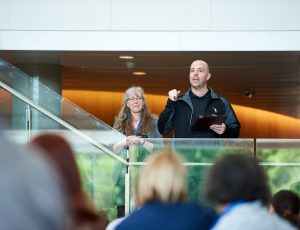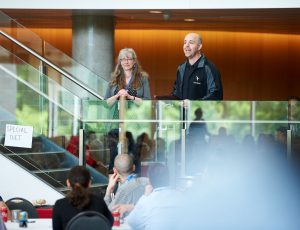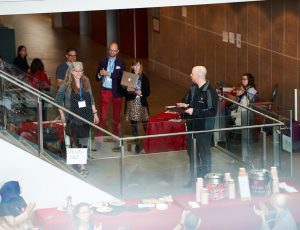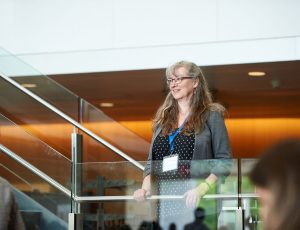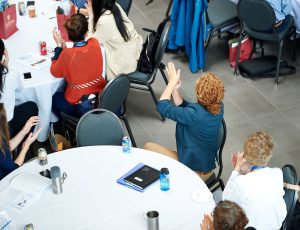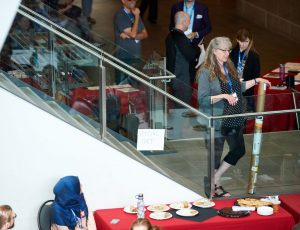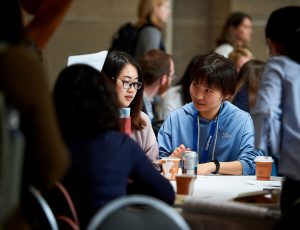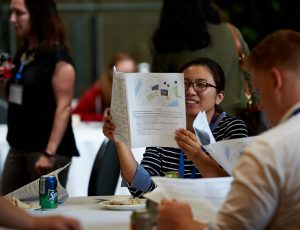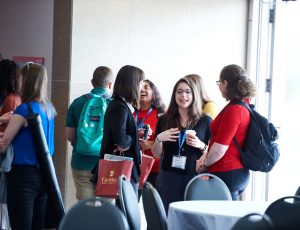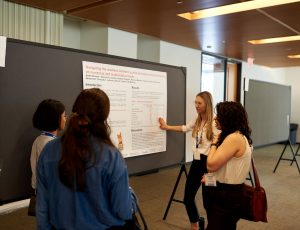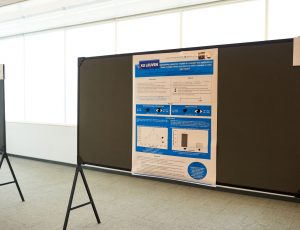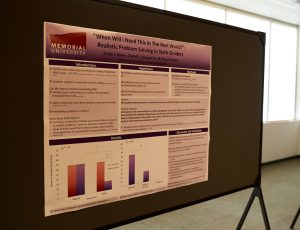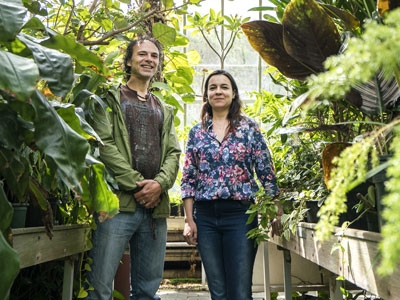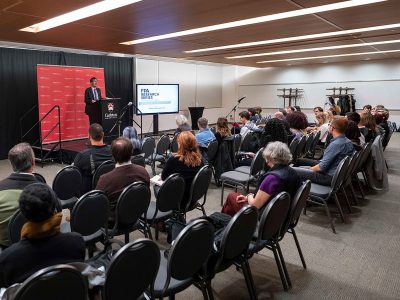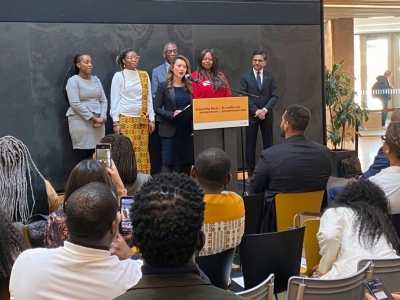By Joseph Mathieu
Photos by Josh Hotz
Although numbers are thousands of years old, our knowledge of how people learn about them is still emerging.
This growing knowledge is being explored from June 16 to 18 at the 2019 Mathematical Cognition and Learning Society (MCLS) scientific conference at Carleton University, where researchers gathered from North and South America, Europe, and Asia to share their newest findings.
“Many of the society’s members are studying questions that will help educators find better ways to teach math to kids,” says Carleton Prof. Jo-Anne LeFevre, a co-organizer of the event. “They are trying to understand mathematical thinking from a scientific perspective and to extend their findings to real-world situations like math class.”
Founded in 2015, the MCLS has 320 members around the world. Its mission is to promote research on all aspects of learning numbers and mathematics. The society supports the publication of an online journal, the fully open-access Journal of Numerical Cognition. The journal publishes research on number processing from diverse disciplines, including philosophy, cognitive science, developmental psychology and cognitive neuroscience.
This is the second MCLS conference and the first in Canada. The inaugural meeting took place in April 2018 in Oxford, England.
“It was very exciting to have a whole conference on the area in which I’ve been doing research for almost 40 years,” says LeFevre. “I’m very pleased that we are able to host MCLS 2019 at Carleton.”
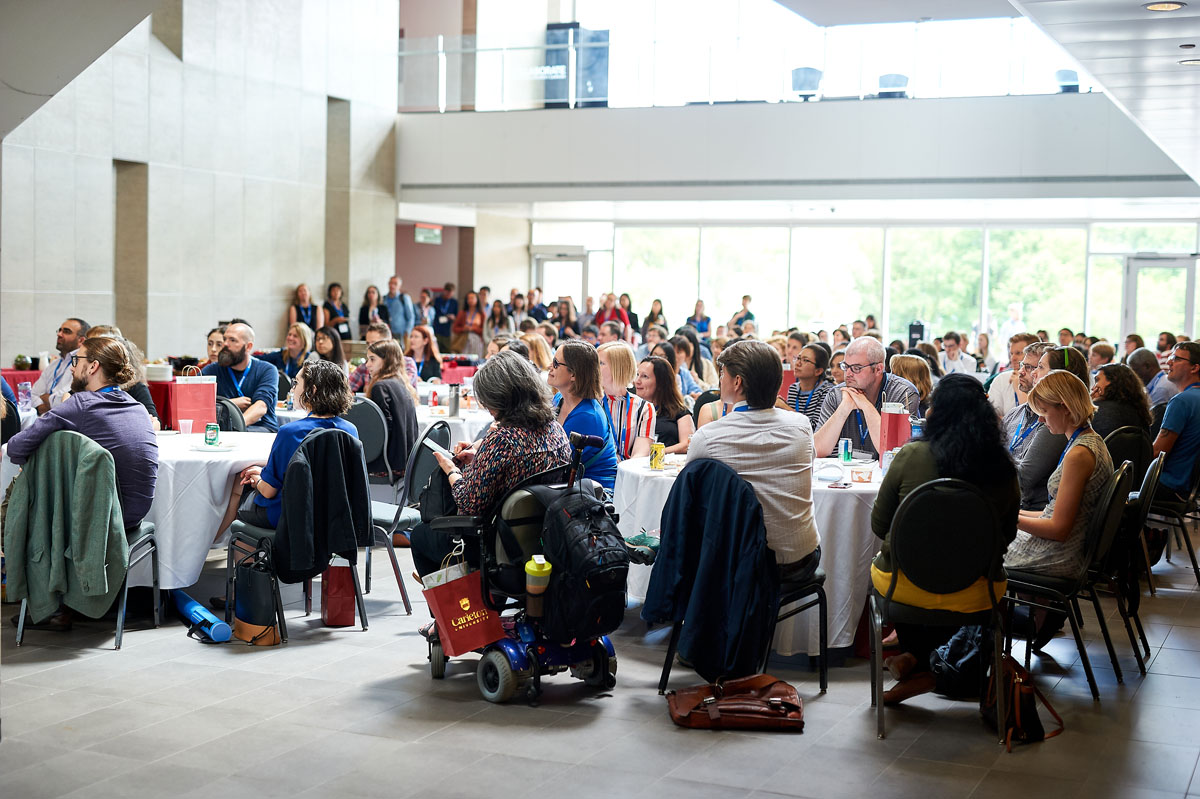
Connecting Math Cognition and Education
The conference’s theme, “Balancing the Equation: Connecting Math Cognition and Education,” was selected to help connect numerical cognition researchers and math educators. Local educators and math consultants from school boards in Ottawa and the surrounding areas are attending the conference’s final day featuring topics of particular interest to this group.
Educators from Montreal, Winnipeg and the Ottawa region will also join in before attending their own hands-on workshop at the Counting on Teachers Forum. The forum links research findings to tools that teachers can use in the classroom.
Although cognitive scientists have conducted research into reading and literacy for more than 60 years, research on the cognitive aspects of numbers and mathematics was very limited before 2000.
When she was an undergraduate in the early 1980s, LeFevre says few people in the world were studying number and math processing from a cognitive science perspective. Two books published in the late ’90s — The Number Sense by French cognitive neuroscientist Stanislas Dehaene and What Counts by British cognitive neuropsychologist Brian Butterworth — helped the field take off.
“An important difference between math and reading is that numbers are not language-specific, they’re very general,” says LeFevre. “Essentially everyone in the world uses the same digits, even though spoken words are different across languages. Consequently, it’s a very universal topic and these books asked: ‘Why have we not seen more research on it?'”
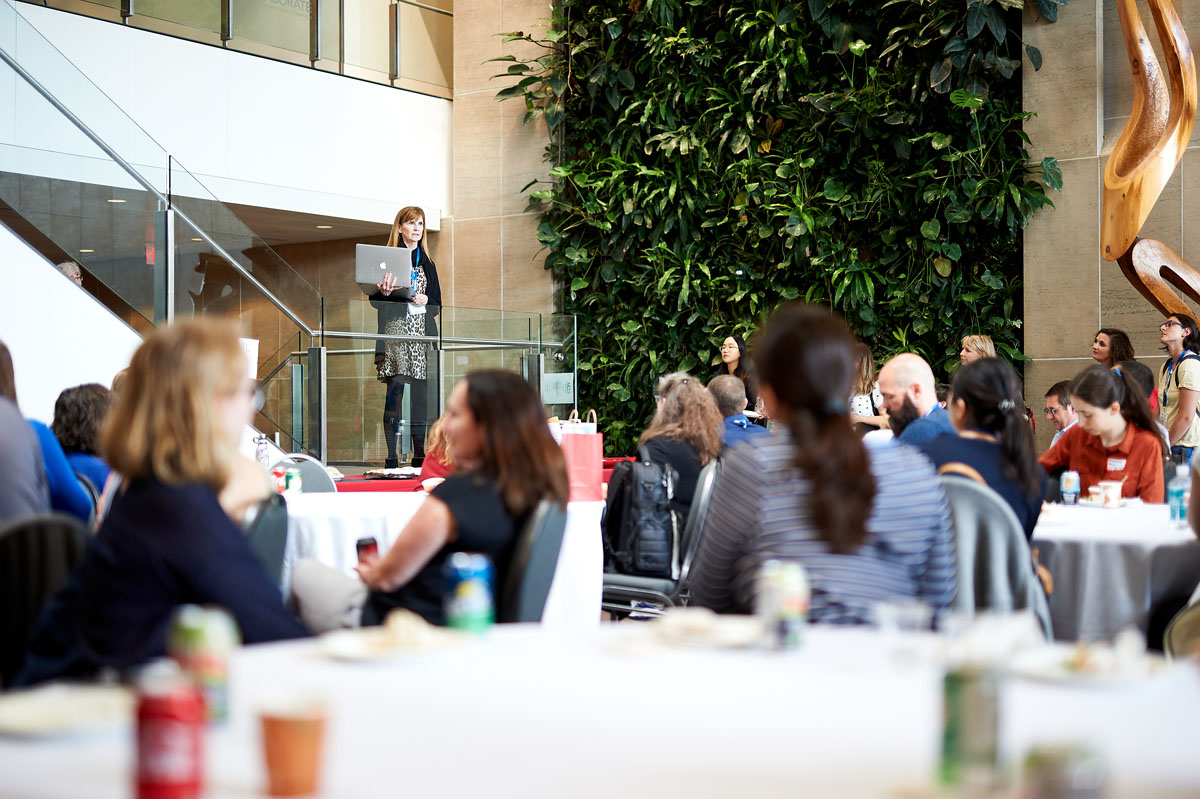
A Global Home Numeracy Network
LeFevre, who has taught at Carleton since 1988, is director of the Institute of Cognitive Science. Her research on fundamental numerical cognition is funded by the Natural Sciences and Engineering Research Council of Canada (NSERC). She was also the lead researcher on the Social Sciences and Humanities Research Council of Canada (SSHRC) project called Count Me In and is currently heading up a project, also funded by SSHRC, on Language Learning and Math Achievement (LLAMA) which explores the question of whether the language children speak at home influences their learning of mathematics in school.
As MCLS secretary, LeFevre co-organized the three-day conference with Rebecca Merkley, Chang Xu and Emilie Roy from Carleton, and Erin Maloney from the University of Ottawa. About 20 undergraduate and graduate students volunteered to help welcome 250 researchers from all over the world to present in 30 symposia sessions, four sessions featuring 140 research posters and 30 “lightning talks.”
These fast-paced talks offer researchers five minutes to give “a tantalizing overview of their research,” says LeFevre. Subjects range from ongoing or upcoming research to collaboration pitches. LeFevre is pitching collaboration on home numeracy.
“I’m interested in what parents do at home to help their children learn about math,” she says. “I’d like to form a global home numeracy network to connect researchers who are interested in this topic.”
The proposed network would help researchers develop either specific or adaptable tools for assessing home numeracy across a broad range of cultures.
Monday, June 17, 2019 in Faculty of Science, Teaching and Learning
Share: Twitter, Facebook


